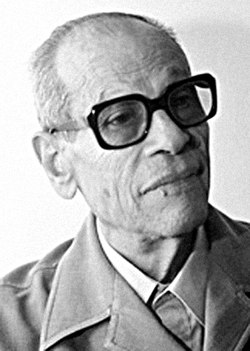Naguib Mahfouz Quote
Related Quotes
The reason a lot of women can't move on from a relationship or people they love is because they need to know why. Why did this happen? Why did you do this? Why don't you care? Why did you hurt me? Why...
Shannon L. Alder
Tags:
being in love, confusion, contradictions, direct, games, hanging on, letting go, love, men, mixed signals
It is not to be understood that I am with him [Jesus] in all his doctrines. I am a Materialist, he takes the side of spiritualism; he preaches the efficacy of repentance toward forgiveness of sin. I r...
Thomas Jefferson
Tags:
atheism, atheist, contradictions, forgiveness, good works, ignorance, materialism, materialist, untruth
[Patricia Highsmith] was a figure of contradictions: a lesbian who didn't particularly like women; a writer of the most insightful psychological novels who, at times, appeared bored by people; a misan...
Andrew Wilson
Tags:
contradictions, gentle, insight, insightful, lesbian, like, misanthrope, nature, novels, people
About Naguib Mahfouz
Naguib Mahfouz Abdelaziz Ibrahim Ahmed Al-Basha (Arabic: نجيب محفوظ عبد العزيز ابراهيم احمد الباشا, IPA: [næˈɡiːb mɑħˈfuːzˤ]; 11 December 1911 – 30 August 2006) was an Egyptian writer who won the 1988 Nobel Prize in Literature. In awarding the prize, the Swedish Academy described him as a writer "who, through works rich in nuance – now clear-sightedly realistic, now evocatively ambiguous – has formed an Arabian narrative art that applies to all mankind". Mahfouz is regarded as one of the first contemporary writers in Arabic literature, along with Taha Hussein, to explore themes of existentialism. He is the only Egyptian to win the Nobel Prize in Literature. He published 35 novels, over 350 short stories, 26 screenplays, hundreds of op-ed columns for Egyptian newspapers, and seven plays over a 70-year career, from the 1930s until 2004. All of his novels are set in Egypt, and always mention the concept of "the lane" as a microcosm of the world. His most famous works include The Cairo Trilogy and Children of Gebelawi. Many of Mahfouz's works have been adapted into Egyptian and international films; Making him one of the most widely adapted Arab authors. While Mahfouz's literature is classified as realist literature, existential themes appear in it.
